Combined program prepares students, alumni to thrive
By Anthony Rodriguez
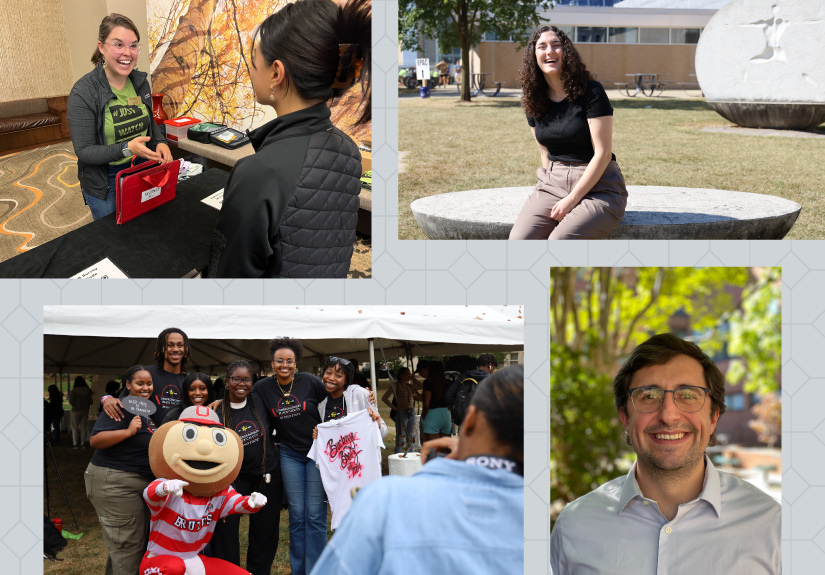
Everywhere you look, public health is addressing today’s most pressing issues.
And College of Public Health students are passionate about gaining a depth of experience and applying it as quickly as they can to the challenges they want to tackle.
The college offers a multitude of options to support those goals, including the BSPH-MPH combined degree, which helps students earn both degrees in less time, save money and demonstrate their abilities and commitment to public health.
“With these degrees, you have the credentials that make you ready for a broader spectrum of jobs,” said Michael Bisesi, vice dean for academic affairs and interim chair of environmental health sciences. “It’s just one more year to capitalize on the momentum you already have” from completing your undergraduate coursework.
Two current students — Emma Rodeman and Billan Gurreh — and two alumni — Carra Gilson and Paul Zivich — share their experiences with the BSPH-MPH combined program.
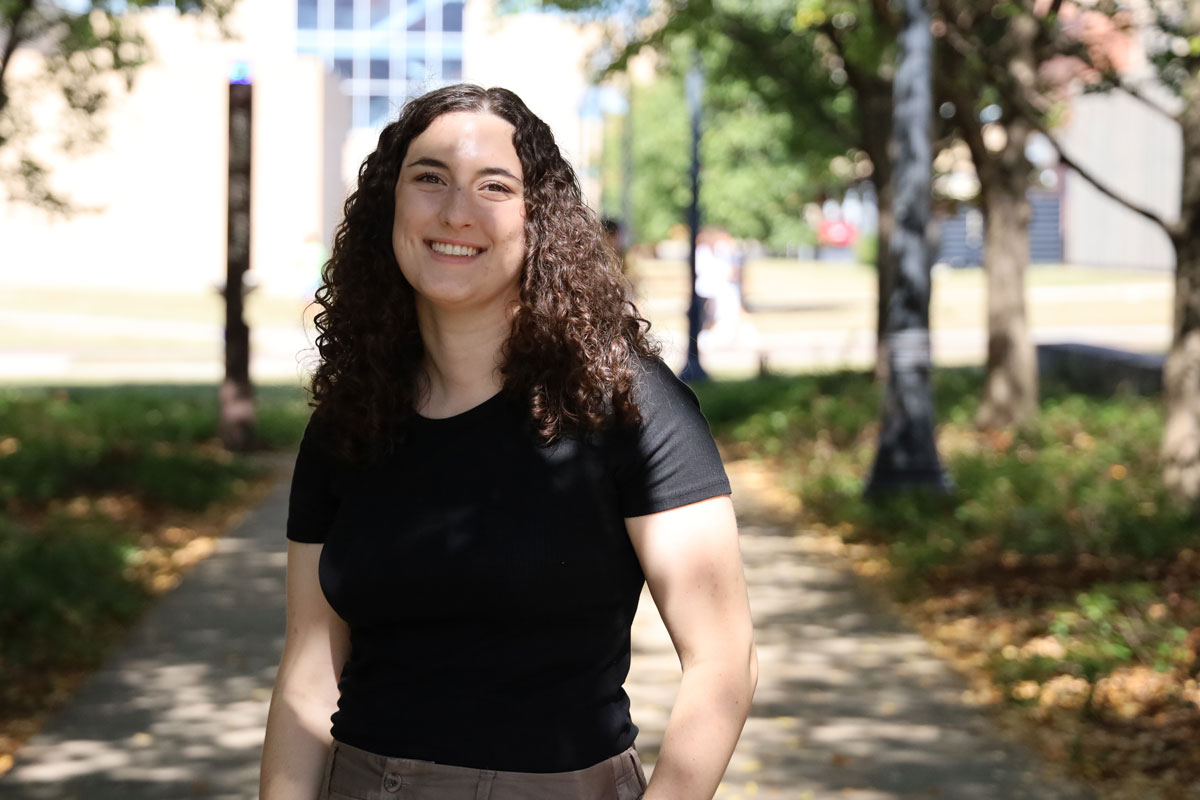
Emma Rodeman: Finding a public health path
Emma Rodeman, '22 BSPH, was undecided coming into Ohio State and open-minded to finding the right major for her.
The exploration program introduced her to many interesting options including the broad spectrum of opportunities within public health.
Her dad works on the “science-y side” of public health, she said, but the careers that touch on the social side were new territory.
Inspiration from Paul Farmer’s international work to bring the tools of infectious disease prevention to those who need it most solidified Rodeman’s interest in the field and her pursuit of the combined program.
The speed with which she became a graduate student — while still technically an undergrad — took her by surprise. Rodeman was taking her first graduate-level courses at the same time as her undergraduate capstone.
“I felt so weird last year saying I was in grad school. I hadn’t even graduated my undergrad yet,” she said. “I felt like I was bragging but I was just saying what I was doing.”
Rodeman was one of the few 21-year-olds in her graduate classes. Others were coming back for their MPH after working a few years and other classmates were “like actual adults with real experiences with things. And I feel like I just graduated high school,” she said.
But she quickly found her way, embracing the opportunity to learn alongside those with different experiences.
“Just accepting that my opinion and my perspective has value” was important, she said.
Rodeman’s experiences at Ohio State have demonstrated just that. In her capstone project with Ohio Students Against Destructive Decisions, she created a curriculum high school students could use to teach elementary students about mental health.
For her applied practice experience, she completed an informal literature review that OSU Extension and the College of Food, Agriculture and Environmental Sciences can use to create a healthy foods guide for early childhood education settings.
She held a leadership position in Ohio State’s chapter of Partners in Health.
And she accomplished all this during a pandemic, where three of the five years of her program were primarily online.
Now, just months away from double Buckeye status, the rural Michigan native is ready to start her public health career in health behavior and health promotion.
“I feel like at least for now, I’d be perfectly happy to just put down roots somewhere and really focus and care about a community.”
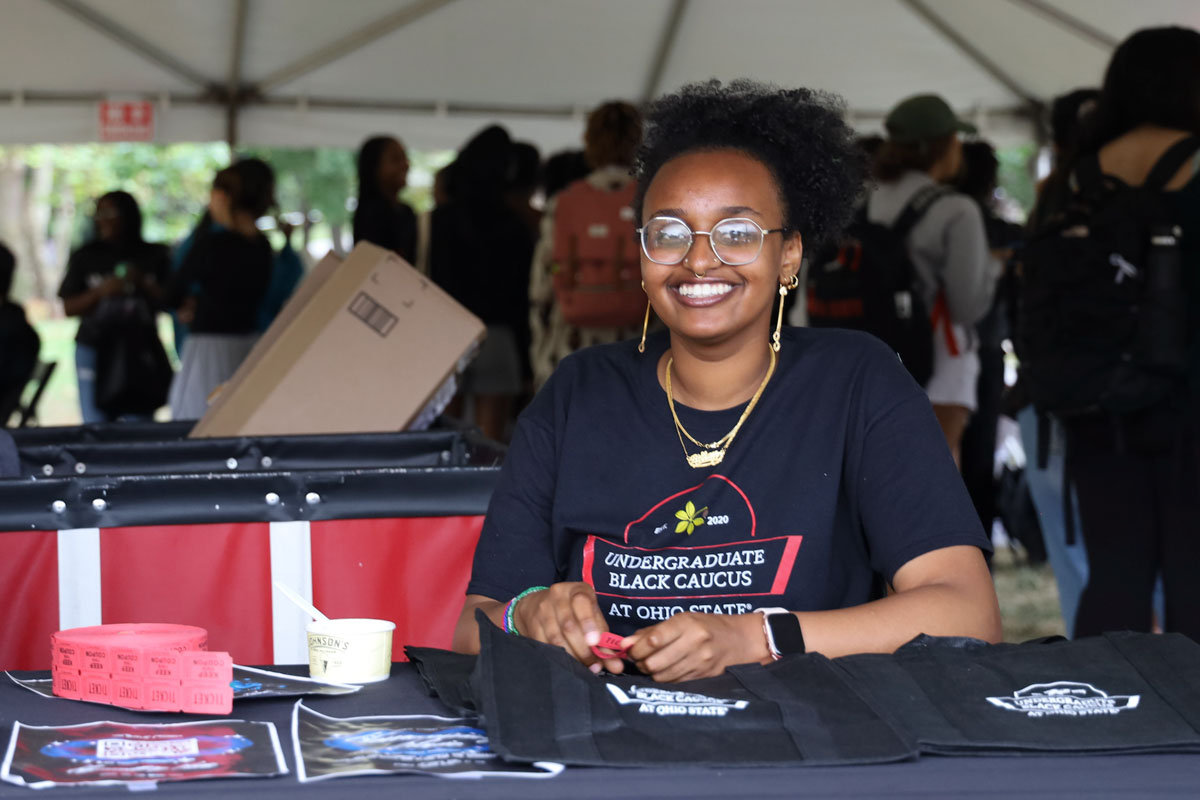
Billan Gurreh: Helping her Somali community address addiction
“Substance abuse has been something that I’ve always been interested in,” said Billan Gurreh, a BSPH-MPH combined program student.
“We don’t really talk about it in my (Somali-Muslim) community. But it’s still a problem. People are still using drugs. I feel like we just need to separate the mindset between religion and behavior because people can easily get addicted to drugs.”
Gurreh initially thought her path to help address addiction was as a pre-med biology major. But as COVID-19 unexpectedly impacted her studies, she evaluated her options.
“What I’ve noticed is when you’re uncertain about what you want for you future, it’s kind of easy to just avoid it and not think about it. I’m almost the opposite,” she said. “When I don’t know a plan for my future, I need to research everything. I need to know every possibility that I can.”
Her conclusion: public health would better help her reach her goals.
Along with having a detail-oriented mindset, Gurreh is deeply curious — something that set her up for success during her capstone project. The partnership with a professor in the College of Education and Human Ecology gave her the chance to study health economics and public policy. The research experience taught her that she thrives more working directly with communities, she said.
As she has transitioned into her health behavior and health promotion graduate coursework, Gurreh is building off the lessons from her undergraduate courses and experiences.
“I think everything I’ve done prepared me for this. It really feels like a smooth transition because you don’t take a break, so you’re not forgetting about school or anything.”
In May, Gurreh will earn her BSPH diploma while planning to start her master’s level applied practice experience where she hopes to gain experience in addressing health disparities and substance abuse.
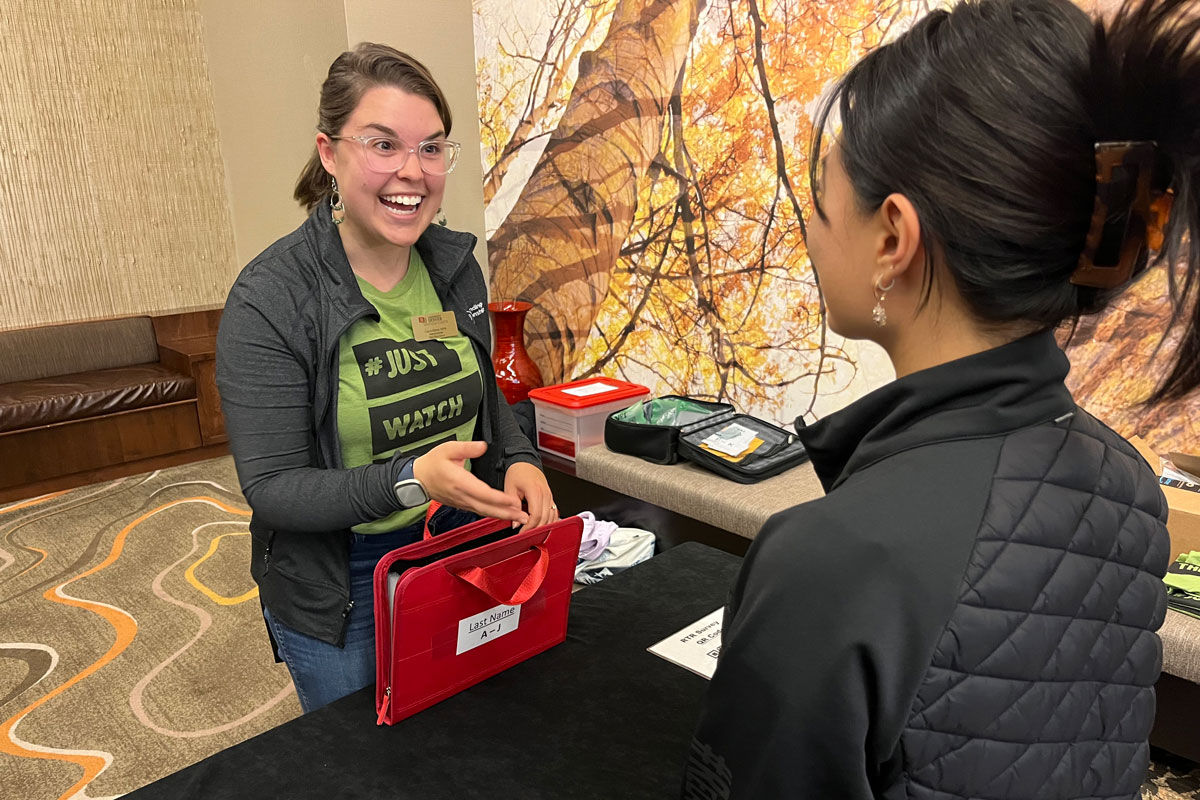
Carra Gilson: Connecting passions to new opportunity
Just before COVID-19 changed everything, Carra Gilson, ’19 BSPH, ’20 MPH, was at a pivotal point. She was in the process of applying to jobs, finishing her thesis and trying to stay connected with family and friends.
“It was a week before COVID really hit us all,” Gilson said. “I was visiting a friend and explaining how overwhelmed I was finishing my thesis. That was the biggest thing to worry about at the time. It felt like it consumed my whole world.”
“And this pandemic hits…It was sort of a wake-up call. It was almost like, okay, you’ve been trained in this. Now, go do it.”
Gilson’s education and experiences in health behavior and health promotion helped her land her first job at Columbus Public Health as a contact tracer and case investigator. Her day-to-day work, in addition to data management, was talking to people and helping them understand what was happening.
It was rewarding work, but after cases slowed down, Gilson was able reconnect with the reasons she was interested in public health in the first place — maternal and infant health and working to prevent human trafficking.
At a conference focused on anti-human trafficking, she learned about Thriving Families, a Denver-based non-profit focused on supporting moms and babies, from its executive director, who shared how they handled trafficking situations and emphasized the importance of their work to prevent trauma from recurring in other generations.
The two stayed connected and the nonprofit director later offered her the choice between two jobs — one in data management of the MotherWise program that Thriving Families provides, the other in program evaluation in a University of Denver research lab, where MotherWise was created.
“I’m not sure how this happened, but somehow I ended up doing both,” she said. “It is truly an incredible experience because my time is split between being on the ground with our participants … the other half I’m in a more academic space of a research lab helping coordinate this bigger picture effort of how the work is impacting participants.”
"And now I have the honor of representing Thriving Families on the local Denver Anti-Trafficking Alliance, where I can represent our work with participants and offer insights back to our team about anti-trafficking in our community."
Gilson credits her Ohio State education, specifically the BSPH-MPH combined program, for building the foundation to excel in her career.
“The program really demanded that I take a lot of initiative,” she said. “(My current job) takes a lot of management that I don’t think I would be as prepared to do if I hadn’t been challenged to also juggle an undergraduate program at the same time as a master’s program. I think it increased my capacity and my efficiency.”
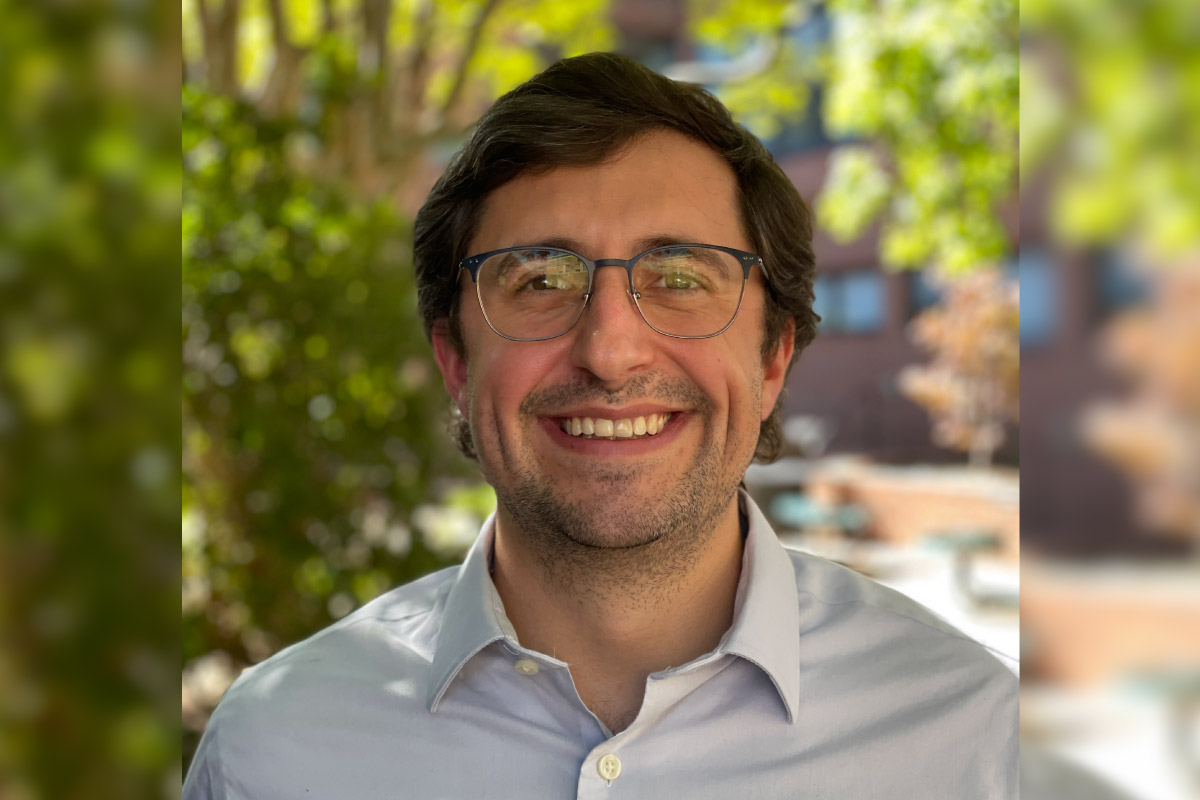
Paul Zivich: Building a foundation for the professorship
Paul Zivich, ’15 BSPH, ’16 MPH, has been learning and training more than 10 years to reach his career goal, and the College of Public Health’s combined program helped get him there.
In October, Zivich started as a research assistant professor at the University of North Carolina’s Gillings School of Global Public Health.
The icing on the cake: He earned a five-year early career research grant from the National Institutes of Health that will advance his work looking at HIV prevention through pre-exposure prophylaxis, or PrEP.
The research will look at previous trials from a new angle in an aim to improve care by reducing side effects, easing the burden of adherence and making treatment more efficient.
It wasn’t easy to get to this point, but the path included many memories and achievements Zivich is proud of, including being part of the first class of students to graduate from the BSPH-MPH combined program.
“Ohio State’s combined degree program gave me a very good foundation to build on during my PhD,” Zivich said.
One of the most meaningful parts of the combined program were the connections made among faculty and staff, along with the ample opportunities to expand his knowledge, he said.
The college also is where Zivich developed his love of research and the decision to pursue his doctoral degree. Participation in the Denman Undergraduate Research Forum, the Hayes Advanced Research Forum and his applied experiences all served to hone his public health interests in infectious disease epidemiology, he said.
With his academic career now in full swing, Zivich is eager to continue the work he started at UNC.